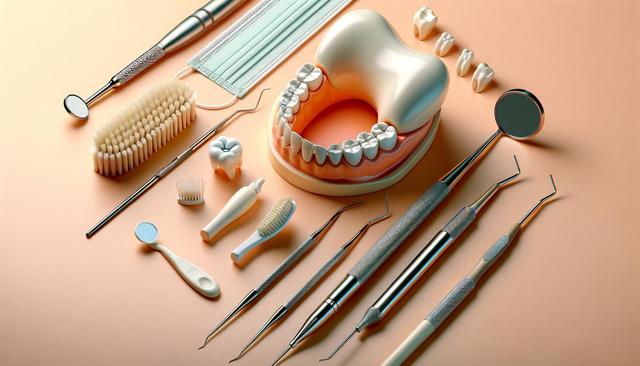The Growing Appeal of Dental Hygiene Careers
In recent years, there has been a noticeable increase in individuals exploring careers in dental hygiene. This trend is influenced by several factors, including job stability, competitive salaries, and a strong demand for preventive dental care. With oral health recognized as a fundamental part of overall well-being, dental hygienists play a vital role in modern healthcare systems. As more people search for a “Dentist Near Me” or try to “Find Dentist Near Me” for routine care, the need for qualified professionals who can support dentists and educate patients continues to grow.
Dental hygiene programs are designed to equip students with the technical knowledge and hands-on experience needed to perform tasks such as teeth cleaning, applying preventive materials, and conducting oral health assessments. These programs offer a pathway into a rewarding profession that combines patient care with the opportunity to make a meaningful impact on community health. It’s no surprise that more individuals are choosing this career path as they seek roles with purpose and practical benefits.
What Dental Hygienists Really Do
Dental hygienists are more than just assistants in a dental office. They are licensed professionals with specialized training who perform a range of critical functions in a dental care setting. Their responsibilities often include:
- Removing plaque and tartar buildup from teeth
- Applying fluoride and sealants to protect enamel
- Educating patients on oral hygiene techniques
- Taking and developing dental X-rays
- Documenting patient care and treatment plans
These tasks help prevent gum disease, tooth decay, and other oral health issues. Dental hygienists also act as a bridge between patients and dentists, often identifying early signs of issues that may require further treatment, such as the need for “Teeth Dental Implants” or other restorative procedures. Their role is both preventive and diagnostic, making them essential to the dental healthcare team.
Education and Licensing Requirements
Becoming a dental hygienist involves more than just interest in oral health; it requires formal education and licensure. Most dental hygiene programs can be completed in two to three years and result in an associate degree, although bachelor’s and master’s degree options are also available for those interested in teaching or research roles. Coursework typically includes subjects such as anatomy, microbiology, pharmacology, and radiography.
After completing an accredited program, candidates must pass both a national written exam and a state or regional clinical board to become licensed. These requirements ensure that dental hygienists are well-prepared to provide safe and effective care. As the demand grows, more educational institutions are expanding their dental hygiene programs, making them more accessible to students from diverse backgrounds. If you’ve ever searched for a “Dentist Near Me,” chances are you’ve interacted with a skilled hygienist who has undergone this rigorous training.
Why More Are Choosing Dental Hygiene Programs
Several compelling reasons are driving the rise in interest in dental hygiene programs. One of the most attractive aspects is job security. The U.S. Bureau of Labor Statistics projects steady growth in this field, driven by an increasing emphasis on preventive care and an aging population that will require more dental services. Additionally, the career offers:
- Flexible work schedules, including part-time opportunities
- Workplace variety, from private practices to public clinics
- Above-average salaries for associate degree holders
- Opportunities for advancement and specialization
For individuals seeking a healthcare career without the extended time commitment of medical or dental school, dental hygiene offers an appealing balance. It also provides a chance to work closely with patients, improve quality of life, and contribute to overall public health. As more people prioritize oral care and search for ways to “Find Dentist Near Me,” the role of the dental hygienist becomes increasingly valuable.
The Role of Dental Hygienists in Modern Dentistry
Today’s dental hygienists are integral to the success of dental practices and the health of their patients. They are often the first professional a patient interacts with during a dental visit, setting the tone for the entire experience. Their ongoing communication with patients about oral hygiene techniques and lifestyle choices can lead to better long-term health outcomes, reducing the need for more invasive procedures like “Teeth Dental Implants.”
Moreover, dental hygienists are increasingly involved in patient education, community outreach, and even research. They help bridge the gap between clinical care and patient understanding by making dental knowledge more accessible. As oral health becomes more closely linked to conditions like diabetes and heart disease, the preventive work of hygienists is gaining recognition as an essential component of overall healthcare.
Conclusion: A Promising Path for Future Healthcare Professionals
Dental hygienists are essential contributors to dental teams and public health. With growing awareness of the importance of preventive care and a rising demand for accessible dental services, this profession offers a stable, fulfilling, and respected career path. Whether you’re a student exploring healthcare careers or someone considering a change, dental hygiene programs provide a practical route into a meaningful and growing field. As more individuals search for a reputable “Dentist Near Me” or look to “Find Dentist Near Me” for regular checkups, the expertise and care provided by dental hygienists will continue to be in high demand.




Leave a Reply